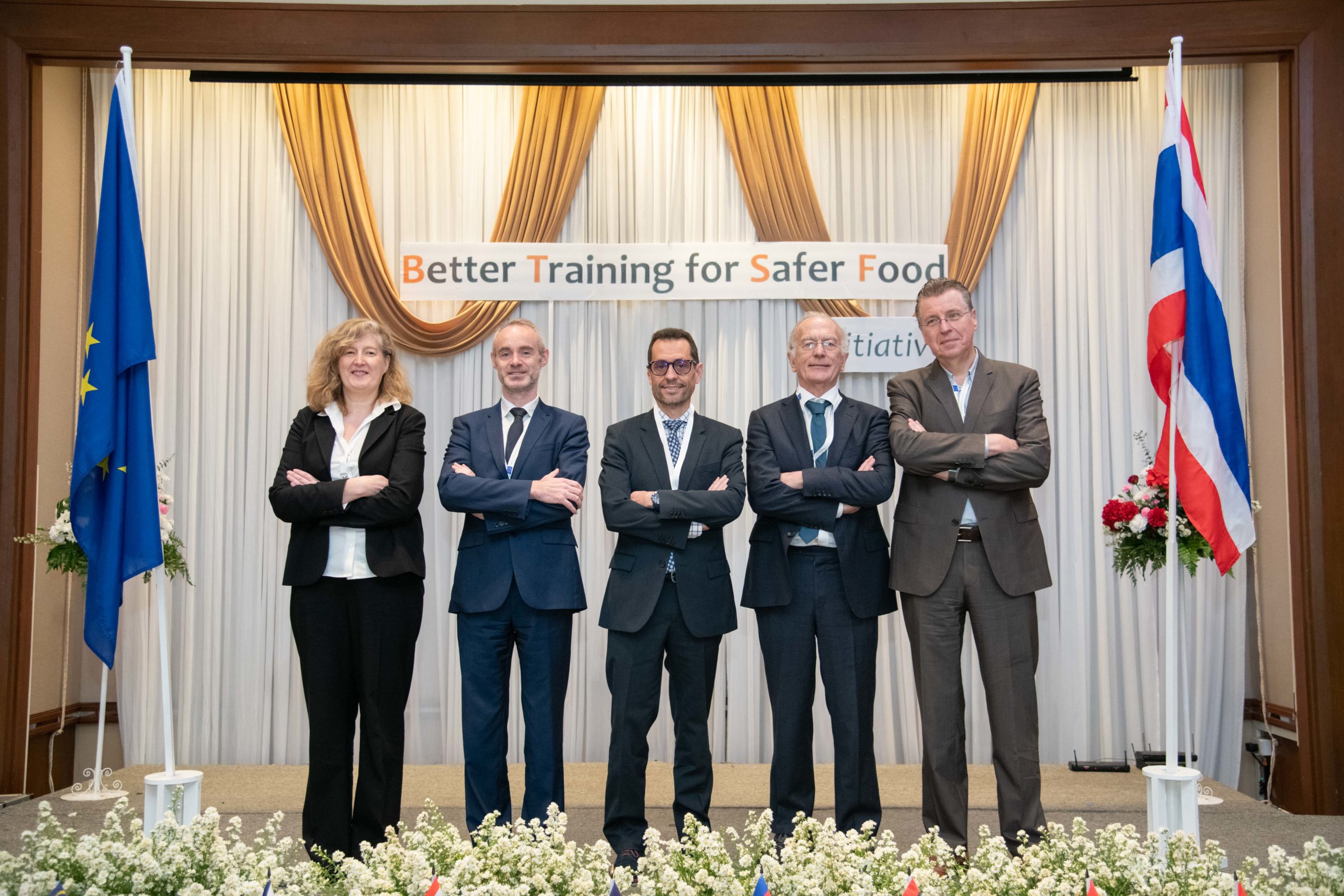
The European commission has developed a comprehensive set of laws that govern the authorization of Novel Foods. Novel Foods are defined as those which have not been consumed to any significant extent within Europe prior to May 15th 1997, the date of the first Novel Food legislation (Regulation (EC) No 258/97).
The European Commission’s Directorate General for Health and Food Safety (DG SANTE) is organising a three-day regional training session that will bring together up to 34 representatives coming from 10 different countries located in Southeast Asia (Cambodia, Indonesia, Japan, Laos, Malaysia, Myanmar, Philippines, South Korea, Thailand, Vietnam). The participants are officials from National Competent Authorities in the above-mentioned beneficiary countries who verify compliance with rules applicable to placing novel foods and traditional foods.
The first of several sessions took place 18th – 21st February 2020, Holiday Inn Silom Bangkok Hotel, Bangkok, Thailand
A group of five International and regional experts delivered this training; it aims at developing cooperation activities on novel food with non EU trade partners with a view to further raise awareness and contribute to a better understanding and more efficient use of existing EU rules applicable to the authorisation and placing on the EU market of novel foods.
This is the first of a series of nine regional training session that will be held in 2020 and 2021 in Africa (Senegal and Ethiopia), Latin America (Argentina and Costa Rica), Asia (India, Thailand and China), Middle East (Jordan) and Europe (Moldova) under the BTSF initiative, expecting to reach 300 participants from 68 countries.
The revised novel food Regulation (EU) 2015/2283 (NFR) covers an increased number of food categories (10 compared to 4 in the old Regulation). New categories specified under Article 3 of the NFR include, foods containing or consisting of animals or their parts (e.g. insects) material of mineral origin, cell or tissue culture microorganisms, animals or plants and engineered nanoparticles. Another new feature of the NFR is the procedure set out in Article 4 whereby a food business can request a determination from a Member State on the novel food status of a food or ingredient. This process is set out in detail in Commission Implementing Regulation (EU) 2018/456.
The NFR has moved the novel food authorisation process to a centralised procedure which allows for a more streamlined process that is more user-friendly for food businesses and regulatory authorities alike. The scientific and administrative requirements for a novel food application are set out in Commission Implementing Regulation (EU) 2017/2469.
Also introduced by the NFR is the option of a “notification” process for traditional foods from third countries. This process, detailed in Commission Implementing Regulation (EU) 2017/2468 allows an applicant to submit a dossier through the Commission’s electronic submission system demonstrating consumption of the traditional food in a third EU country by a significant number of people for at least 25 years. Where EFSA or Member States do not submit reasoned safety objections, the Commission can authorise the food and update the Union List. However, where a reasoned safety objection is submitted, the applicant may either withdraw the notification, or else submit a full application under the regular procedure. EFSA has produced guidance on the preparation and presentation of a notification or subsequent application dossier for traditional foods from third (non-EU) countries.
###
About BTSF
BTSF is a European Commission training initiative covering food and feed law, animal health and welfare and plant health rules implemented in both the EU and with third countries. More details could be found at: https://ec.europa.eu/food/safety/btsf_en.
For more information, please contact:
Midas Communications International Co., Ltd.
Lydia Bumrungkarn
Tel: 081-556-9999
Email: [email protected]
Ruksina supatnuntakul
Tel: 080-304-8870
Email: [email protected]
Website: www.midas-pr.com
